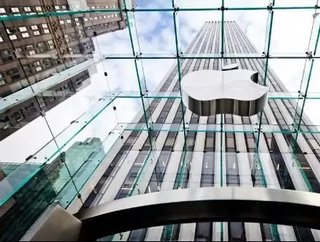Google pips Apple

Apple’s brand value has dropped 27 percent, ending a 5-year period at the top. The world's most valuable brand is Google, with a value of US$109.4 billion.
Google’s brand value rose by 24 percent during 2016 (from US$88.2bn to US$109.4bn) whilst Apple’s declined from $145.9 billion to $107.1 billion, according to the latest Brand Finance Global 500 report. Google last occupied the position of the world’s most valuable brand in 2011.
The company remains largely unchallenged in its core search business, the mainstay of its advertising income. Ad revenues were up 20 percent in 2016 as budgets are increasingly directed online and Google finds more innovative ways to monetise users.
David Haigh, CEO of Brand Finance, said: “Apple has struggled to maintain its technological advantage, with new iterations of the iPhone delivering diminishing returns, while the Chinese market is now crowded with local competitors. Apple has been living on borrowed time for several years by exploiting its accumulated brand equity. This underlines one of the many benefits of a strong brand, but Apple has finally taken it too far.”
Every year, leading valuation and strategy consultancy Brand Finance values the brands of thousands of the world’s biggest companies. Brands are first evaluated to determine their power / strength (based on factors such as marketing investment, familiarity, loyalty, staff satisfaction and corporate reputation). Brand strength is used to determine what proportion of a business’s revenue is contributed by the brand, which is projected into perpetuity to determine the brand’s value. The results of this analysis are ranked, with the world’s 500 most valuable brands featured in the Brand Finance Global 500.
Lego has regained its status as the world’s most powerful brand. The building blocks for Lego’s brand strength have always been present but the release of the Lego Movie in 2014 provided the final push required to make Lego the world’s most powerful brand in 2015. The first sequel, the Lego Batman Movie will be released on February 9th. Its predicted impact has helped Lego regain its top position, lost to Disney in 2016. Further planned releases will continue to build the brand for years to come, while contributing significantly to Lego’s already vast licensing income.
David Haigh adds: “Unvalued brands can lead to undervalued companies that are more vulnerable to takeover, struggle to secure adequate financing and miss market opportunities. Meanwhile a powerful brand can protect a company’s value during turbulent market conditions, create new market opportunities and increase profit margins. All companies should therefore not just know the value of their brands, but also understand what drives that value and how it can be harnessed to benefit the business as a whole.”
Highlights also include:
- China’s bank brands are now worth more than those of the United States
- ICBC is the world’s most valuable banking brand
- AT&T has overtaken Verizon to become the world’s most valuable telecoms brand
- Emirates is no longer the most valuable airline brand, having been overtaken by American, United & Delta
- Coca-Cola, Pepsi, McDonalds, KFC & Subway all see brand values fall, undermined by healthy eating trends
- Nokia’s brand is back from the brink and back in the top 500, following takeover and rebrand of Alcatel and launch of the Nokia 6 phone






